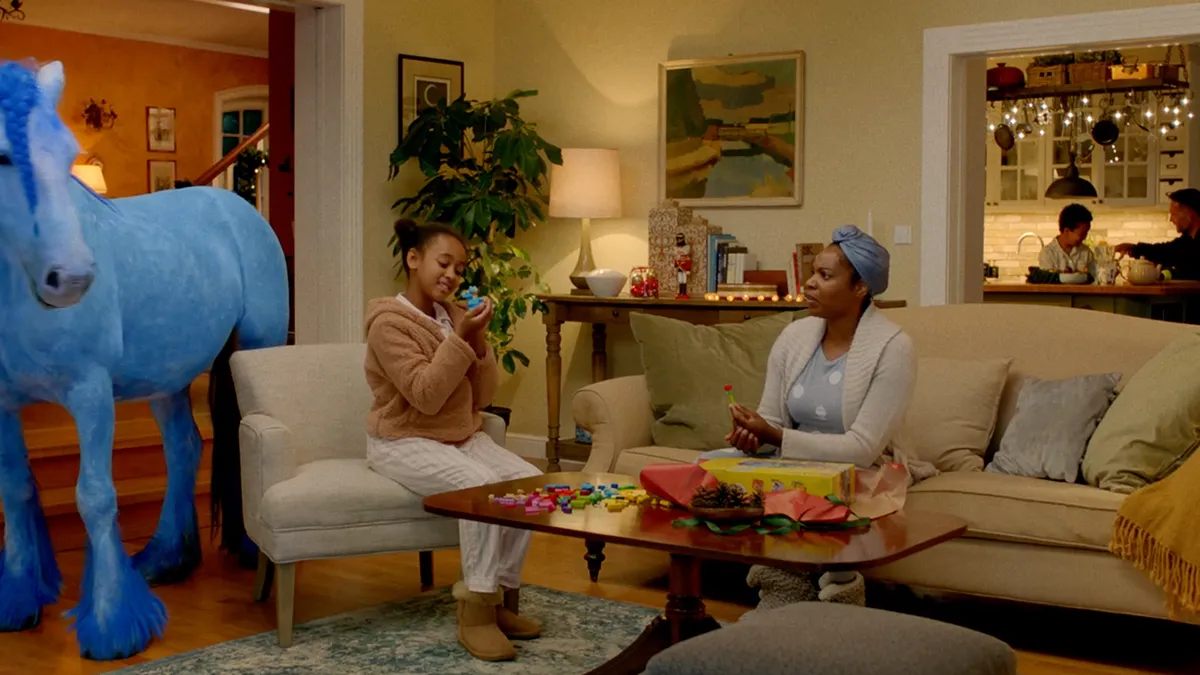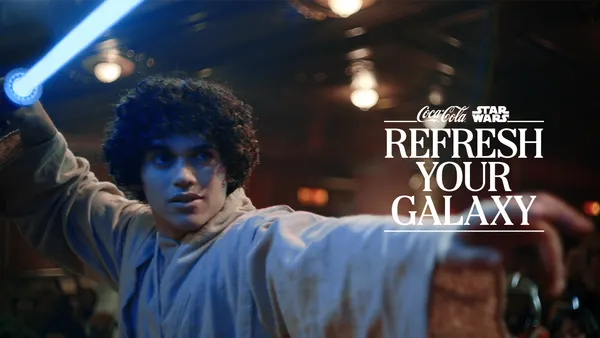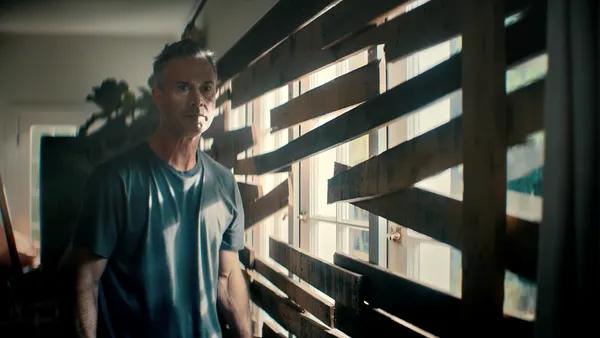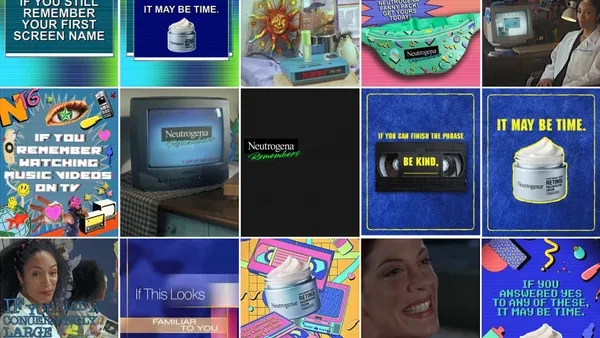Dive Brief:
- Lego has debuted a new holiday campaign that shows families coming together to create their own worlds with the building blocks. The fully integrated campaign will include TV, digital, out-of-home and e-commerce channels, according to an announcement.
- The campaign will also include shoppable formats, enabling consumers to seamlessly buy products depicted in the spot. In addition, the company has curated Spotify playlists inspired by hobbies, interests and themes from the campaign.
- Lego's campaign prepares the company for a holiday season that will see consumers increasingly taking of advantage of digital and e-commerce channels due to the coronavirus pandemic.
Dive Insight:
Lego's campaign, which is part of the brand's "Rebuild the World" effort, celebrates how the creativity inspired by its construction sets can inspire adventures, even when consumers are stuck at home. Holiday celebrations are expected to be particularly muted this year, as the health crisis will likely curtail travel plans and large family gatherings.
With its focus on e-commerce channels, shoppable formats and Spotify playlists, the Lego campaign is well-suited for how consumers have been shopping and entertaining themselves during the pandemic, trends that are likely to continue this holiday season and beyond.
"We've seen so many families building together this year, giving parents a chance to experience and appreciate how children can build, unbuild and rebuild the world around them using LEGO bricks. We want to inspire people of all ages to play and unleash their creativity this holiday season," Lego Group chief marketing officer Julia Goldin said in a statement.
Lego's sales were up 14% in the first half of 2020, compared with the same period last year, as families found themselves largely at home, together, and craving screen-free creative time. Even before the pandemic, Lego had targeted stressed-out adults as a new and potentially lucrative market.
Similarly, board games and puzzles saw a huge jump in sales in the first weeks of the pandemic. As it wears on, consumers are showing interest in toys that evoke a sense of nostalgia, such as Barbie. Fisher-Price last month opened a virtual museum on Instagram to capitalize on the trend.












